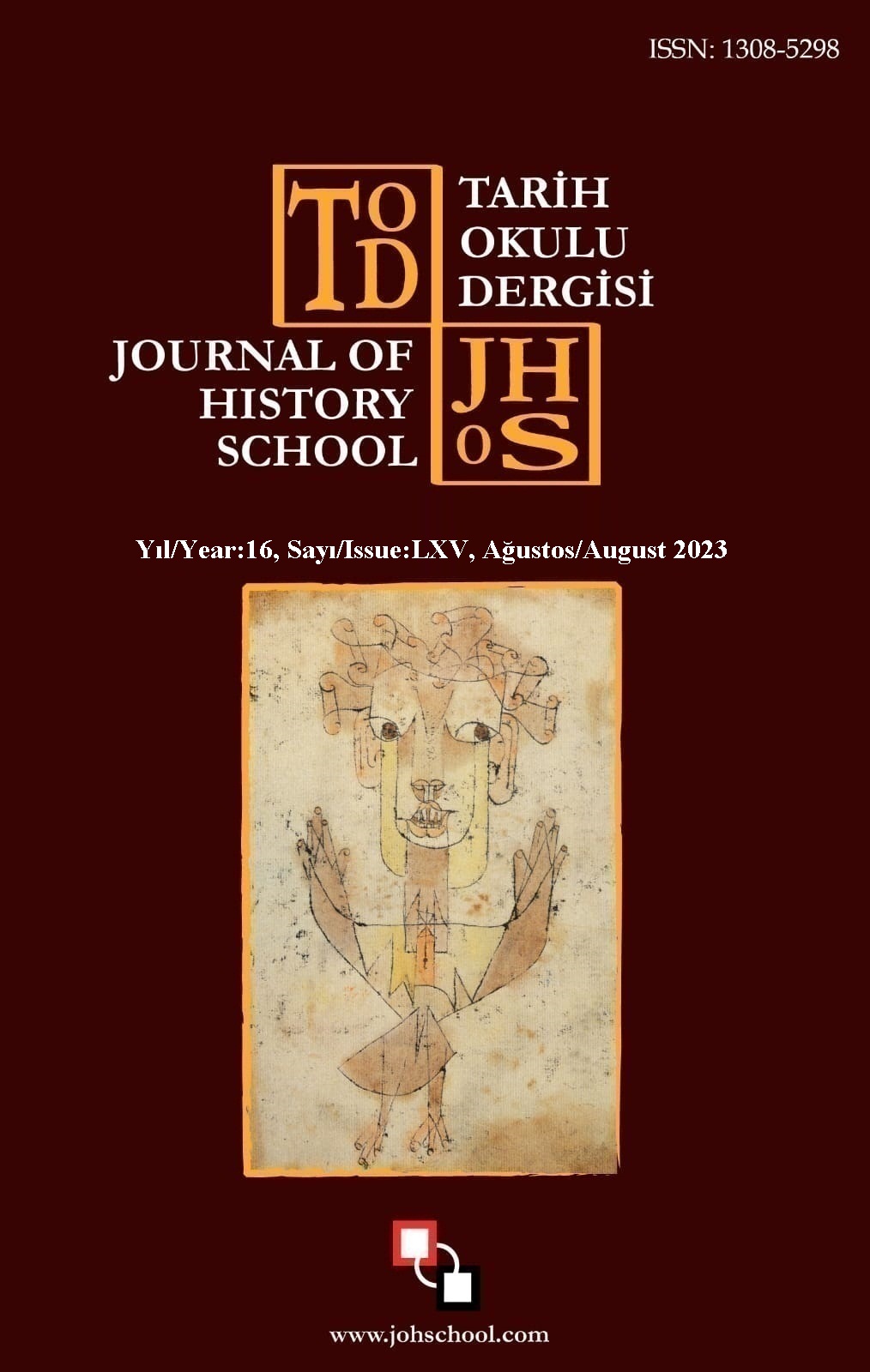Author :
Abstract
Ücretler, aylıklar anlamına gelen “mevâcib” tabiri, Osmanlı Devleti’nde idarî görevlerde bulunanların maaşları için kullanılmıştır. Mevâcib için ayrı defterler tutulup; maaş alanların isimleri yazıldığı için bu defterlere “esâmi defteri” ya da “mevâcib defteri” denilmekteydi. Esasen arşivlerde yeniçeri, ulûfe, esâmi, kale veya mevâcib defteri olarak tasnif edilen defterlerin mantığı aynı olup, bu defterler ücret defterleridir. Bu tür defterlerde görevlilerin isimleri ve aldıkları ücretlerin kaydı bulunmaktadır. Vakıflara bağlı kurumlarda çalışan personelin ücretleri bu defterlerden takip edilebilmektedir. Bilindiği gibi Osmanlı Devleti’nde şehirlerdeki dinî ve sosyal yapılar vakıflar aracılığıyla inşa edilmekteydi. Bu yapılardan imaret ve camilerin harcamaları ile personelinin ücretleri de vakıflar tarafından finanse edilmekteydi. Çalışmamızda kullandığımız TSMA.D., nr. 1532 numaralı defterdeki kayıtlar H. 905/M.1499 tarihinde Bursa’da bulunan cami ve imarette görevli vakıf personelinin isimlerini ve aylık ücretlerini içermektedir. Defter-i Esâmi ifadesiyle başlayan bu defter, Bursa’da ismi belirtilmeyen bir cami ve imaretteki imam, müezzin, hâfız ve salâvatçı gibi dinî işlerde görevli memurlar ile tamirci, aşçı, ekmekçi, temizlikçi ve hamal gibi diğer görevlilerin mevâciblerini içermektedir. Çalışmamızda, 1532 numaralı esami defterindeki başlıklar göz önünde bulundurularak memurların aylıkları ele alınmıştır. Öncelikle cami ve imarette çalışan personel, bunların sayıları, unvanları, günlük ve aylık mevâciblerinin listeleri ile her bir sınıftaki memurun görevleri, isimleri ve aylıklarının listesi yapılmıştır. Buna göre cami ve imarette çalışan tüm personele aylık olarak toplamda 25.860 akçe ödenmiştir. Ayrıca ücretleri Bursa’daki kervansaray gelirlerinden ve hazineden ödenen cami memurlarının da aylıkları listelenmiştir. Bu kapsamda sabah, öğle ve ikindi vakitlerinde Kur’ân-ı Kerim okumakla görevli 90 nefere günde 186 akçe, ayda 5.580 akçe ve yılda 66.960 akçe ödenmiştir. En‘âm okuyan 22 kişiye ise maaşlarının hazineden ödenmek üzere günde 88 akçe, ayda 2.640 akçe ve yılda 31.680 akçe olduğu anlaşılmaktadır.
Keywords
Abstract
The term “mevâcib”, meaning salaries, is used for the salaries of those who held administrative positions in the Ottoman Empire. Separate books are kept for the mevâcib; these books were called “esami book” or “mevâcib book” because the names that did not pay salaries were written. Essentially, the logic of the notebooks classified as janissary, ulufe, esami, castle or mevâcib registers in the archives is the same, and these registers are wage registers. In these books, the names of the officials and the records of the wages can be followed. The costs of working in the organizations affiliated to the foundations can be followed from these books. In the Ottoman Empire, religious and social structures in the cities were built through waqfs. The expenditures of the soup kitchens and mosques and the expenses of the personnel were also financed by the waqfs. In our study the records in the book numbered TSMA.D., nr. 1532 include the names and monthly salaries of the mosque and public servant foundation staff in Bursa on H. 905/ M.1499. This notebook, which starts with the phrase Defter-i Esâmi, contains the duties of religious officials such as imam, muezzin, hafiz and salawat worker, and other officials such as repairmen, cooks, bakers, cleaners and porters in a mosque and soup kitchen in Bursa. In our study, the salaries of civil servants were discussed by considering the contents of the 1532 registered esami book. First of all, a list of the personnel working in mosques and soup kitchens, their components, titles, daily and monthly allowances, and the burdens, names and salaries of the officials in each class were made. Accordingly, 25.860 coins were paid monthly to all personnel working in mosques and soup kitchens. In addition, the salaries of mosque officials who set out from the caravanserai revenues and the treasury in Bursa were listed. 186 akches per day, 5.580 akces per month and 66.960 akces per year were paid to 90 soldiers who were assigned to read the Quran in the morning, noon and afternoon hours. It is understood that 22 people who read En'am were paid 88 akce a day, 2.640 akçe per month and 31.680 akçe per year, their salaries from the treasury.





